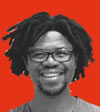SIMNIKIWE XABANISA says dropping the Kings from Super Rugby could hinder SA Rugby's transformation efforts.
Whoever came up with the expression there’s nothing like a hanging in the morning to focus the mind may as well have had the Kings in mind when he said that.
Ever since they and the Cheetahs were given the impression they were odds-on to be relegated from Super Rugby after Sanzaar’s decision to do without three teams in next year’s competition, the Kings have responded by playing the kind of rugby which has everyone wondering why their franchise is under threat in the first place.
But those of cynical bent among us are of the opinion that it’s too little too late as not only do they not have the money to stay in Super Rugby (their campaign this year was bankrolled by an increasingly skint SA Rugby), they also don’t seem to have the following, if the empty stadiums at their recent matches are anything to go by.
Almost proving that point to the doubting Thomases is the Kings’ current campaign to fill up the Nelson Mandela Bay Stadium in their grudge match against the Sharks this weekend.
Having played so well in their last two games and been a couple of rough calls away from upsetting the Sharks in the corresponding fixture in Durban, why would they even need to encourage their supporters to turn up, the cynics have the right to ask.
But a bit like how we pick players for our teams in SA – on the strength of their weaknesses as opposed to their actual strengths – the tendency is to judge the Kings on what they can’t do as opposed to what they can.
The question South African rugby should be asking itself is if it can afford to close down the transformation factory that is the Eastern Cape by taking away the Kings' franchise?
Looking at this year’s team alone, the Kings have given us three out and out new black players in Makazole Mapimpi, Andisa Ntsila and Yaw Penxe, and reintroduced Luzuko Vulindlu as an inside centre, which is probably the position he should have been playing for years.
Of the other franchises, how many can claim to have done the same without injury or sabre-rattling by the sports ministry forcing their hand?
The most interesting thing is that those players don’t only come from the celebrated Eastern Cape schools, they also come from remote areas like Tsholomnqa, outside East London, and the Transkei.
Speaking of Tsholomnqa, I remember a report from years ago claiming Rudolf Straeuli said former Border winger Ian Fihlani, himself from the rural area where rugby is the only sport, had little chance at a higher level because he couldn’t speak English.
Forget that Afrikaans players also struggle with English but it’s never been a hindrance to their opportunities, it’s comforting to know that your ability to speak English isn’t the criteria of getting picked at the Kings.
Also, one of the big things we lament is the lack of black forwards in the SA game. Through the likes of Thembelani Bholi, Lizo Gqoboka and former Bulls player Musa Tukela, it’s clear that the Transkei produces some big fellas, so why not leave them a formal pathway to follow that leads to the Kings?
The most obvious response to most of that is all franchises and provincial unions should be transforming and not leaving it to the Kings to do it.
But having watched the Bulls et al buy up all the young black talent in the region in its infancy simply to balance their transformation books, I can’t help but feel we’re light years away from a situation in which it doesn’t happen cynically.
Many will say the Kings have been given chances since 2013 and cocked them up. There is a grain of truth in that, but I would argue that each time they were handed franchise rugby there was a lack of vision attached to it.
Simply put, insisting on picking most of your teams from less than 10% of the country’s population makes little commercial or elite performance sense, and the Kings could help with that.
Photo: Deryck Foster/BackpagePix




